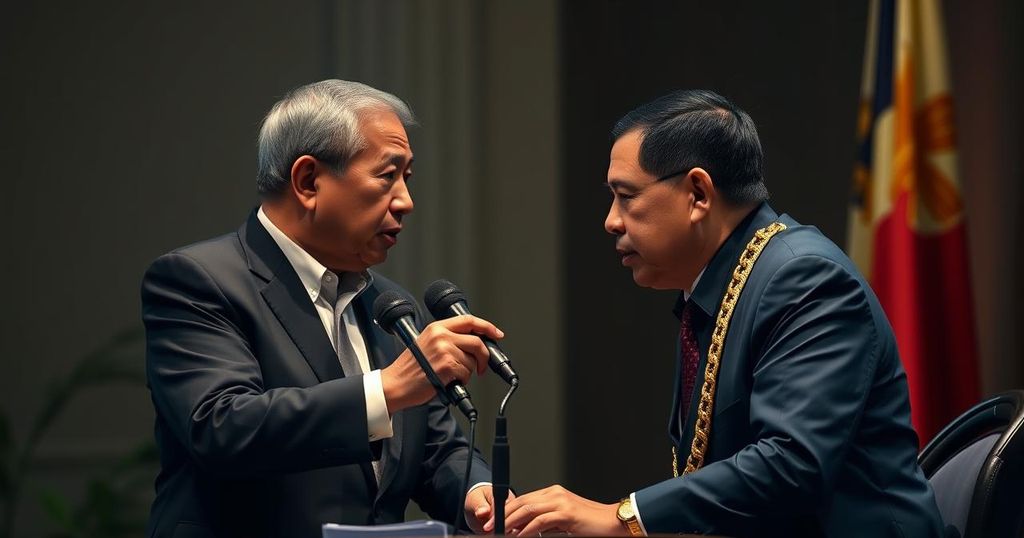Global Hot List: Key Political Developments Around the World
This week’s Global Hot List covers various political trends including concerns over polling in the U.S., a voting divide in India, the rise of an extremist party in Lithuania, unrest in Mozambique, speculation of a snap election in Ireland, electoral manipulation fears in Georgia, the impeachment of Kenya’s vice president, tensions in the Philippines, and the growing political influence of police in Brazil.
In this week’s Global Hot List, several significant political developments are analyzed, shedding light on electoral dynamics and political tensions across various nations. The United States is experiencing concern among Democrats regarding Vice President Kamala Harris’s popularity as they approach the election, with advisors suggesting that fluctuating polls should not dictate their strategy. India’s recent state elections indicate a rural-urban voting divide, with the right-leaning Bharatiya Janata Party (BJP) performing strongly in urban settings while opposition Congress remains influential in rural areas. In Lithuania, a national legislative election saw the rise of an extremist party, Dawn of Nemunas, which has sparked controversy surrounding its founder’s anti-Semitic claims. Mozambique is witnessing a potential crisis as an independent presidential candidate challenges the ruling party’s legitimacy, threatening a nationwide strike. In Ireland, speculation arises regarding a snap election, as the political landscape shifts in favor of the Fine Gael party against Sinn Fein, which has been facing internal issues. Georgia’s ruling pro-Russia party raises concerns about possible electoral manipulation as the political landscape becomes increasingly polarized. In Kenya, the vice president faces impeachment proceedings over corruption and ethnic incitement accusations, while in the Philippines, the vice president publicly declared her lack of friendship with the president, exacerbating existing political tensions. Additionally, in Brazil, social media-savvy police officers are entering politics, raising concerns over the implications for human rights and public safety. Each of these narratives reflects a complex interplay of political forces, revealing the volatile nature of current global politics and the influence of individual personalities and parties. As these situations evolve, the outcomes will likely have significant implications for each country’s stability and political future.
The Global Hot List serves as an analytical overview of various political environments worldwide, highlighting pressing issues and electoral dynamics. This week’s compilation emphasizes the interconnected nature of political events, focusing on individual narratives that illustrate broader trends. In the U.S., concerns surrounding electoral stability among Democrats illustrate the volatility of American politics. The situation in India reflects a deeper examination of electoral behavior, showcasing how societal divisions manifest in political outcomes. Lithuania’s political shift corresponds with a wider trend of rising extremism in Europe. In Mozambique, grassroots political actions are indicative of broader discontent with long-standing ruling parties. Ireland’s potential early elections suggest ongoing instability within the political sphere. Georgia’s concerns center on the influence of foreign powers, particularly in the context of Russian interference. Kenya’s impeachment highlights the challenges of governance, while the Philippines presents a narrative of personal and political rivalry. The rising influence of police in Brazilian politics raises critical questions regarding governance and societal values. Overall, the Global Hot List provides insight into how these situations are not isolated but rather reflect a continuum of political challenges globally.
The Global Hot List illustrates the significant and multifaceted nature of current political developments across various nations. From the electoral landscape in the United States to rising extremism in Lithuania, these events underscore the intricate interplay of political strategies, societal expectations, and personal rivalries that shape governance today. As these narratives unfold, their consequences will be critical in determining the political landscape for the foreseeable future across the globe.
Original Source: www.semafor.com




Post Comment